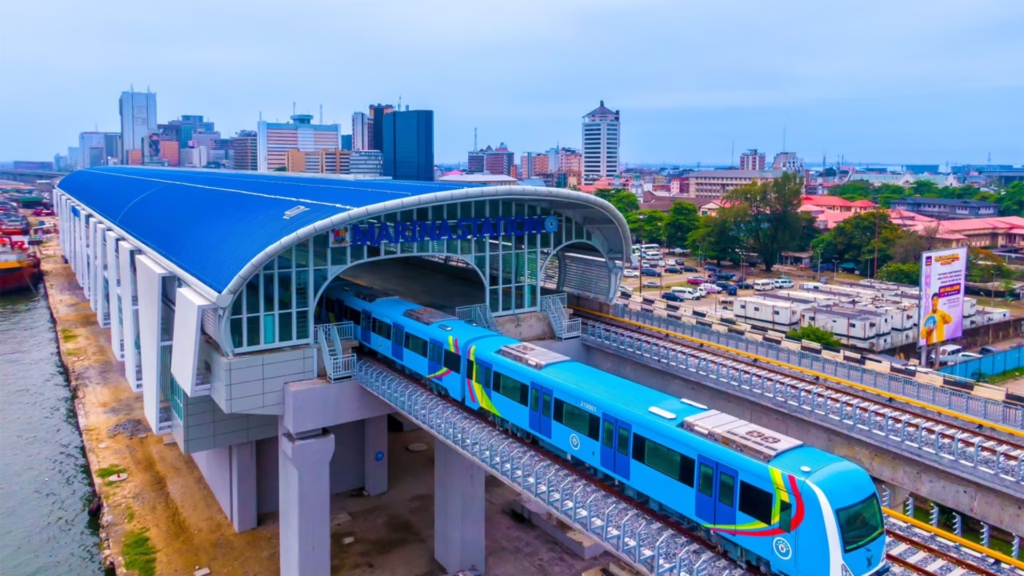Nigeria’s economy is projected to outpace the US, UK, and others in 2025, gaining renewed credibility after being reaffirmed by the International Monetary Fund (IMF) in its July 2025 World Economic Outlook update. The IMF upgraded Nigeria’s GDP growth forecast for 2025 from 3.0% (April projection) to 3.4%, reflecting stronger-than-expected macroeconomic performance, policy reforms, and sectoral resilience.
With this upward revision, Nigeria, Africa’s most populous country, has officially leapfrogged several major advanced economies in the growth rankings, and this marks a historic shift in the global economic balance, with an emerging market economy like Nigeria demonstrating faster expansion than some of the world’s most developed nations.
The IMF’s forecast not only showcases Nigeria’s resilience amid global headwinds but also positions it as a leading driver of growth in Sub-Saharan Africa and beyond, which makes it a fertile ground for investment.
Key Data & Comparisons
According to the IMF’s latest projections, Nigeria’s GDP is expected to grow by 3.4% in 2025, up from an earlier forecast of 3.0%, surpassing the global growth projection of 3.0% (revised from 2.8%). This positions Nigeria ahead of several advanced economies, including the UK at 1.2%, the US at 1.9%, Germany at 0.1%, and Canada at 1.6%. By positioning Nigeria’s economy ahead of these major economies, the IMF highlights the country’s growing influence in the global economic landscape and its potential to reshape the world’s economic order in the medium term.
Why Is Nigeria’s Economy Growing Faster in 2025?
1. A Bigger and More Accurate GDP
Nigeria’s National Bureau of Statistics (NBS) recently updated its measurement of the country’s economy, raising the GDP from ₦314 trillion to ₦372.8 trillion (about US$243 billion). This update now includes many informal activities, like small home-based businesses, local retail shops, and small-scale manufacturing, which were previously unaccounted for.
This provides a more accurate and comprehensive view of the diversity and dynamism of Nigeria’s economy.
2. More Oil, More Refineries
Nigeria’s oil and gas sector is getting a boost from higher production and new local refineries. The IMF says these new refineries could add up to 1.5 percentage points to Nigeria’s GDP growth in 2025. Alongside oil, other industries, especially services like telecoms, banking, and ICT, are also performing strongly and are helping to keep the economy on an upward path.
3. Strong Reforms, Stronger Confidence
Nigeria’s recent economic reforms are a big reason for investor optimism. Key changes include:
- Foreign exchange unification makes the currency market more transparent.
- Tighter monetary policy to fight high inflation (around 23%).
- Ending fuel subsidies would free up money worth about 2% of GDP for other priorities.
These moves have boosted confidence among investors, attracted more foreign investment, and made it easier for businesses to get foreign currency.
READ MORE: Move to the UAE on a Virtual Work Visa Without a Local Sponsor
Global Context: Emerging vs Advanced Economies (2025 IMF Forecast)
| Country/Region | 2025 GDP Growth (%) |
| Nigeria | 3.4 |
| China | 4.8 |
| India | 6.4 |
| Brazil | 2.3 |
| Mexico | 0.2 |
| Canada | 1.6 |
| US | 1.9 |
| UK | 1.2 |
| Germany | 0.1 |
| Global Avg | 3.0 |
As captured in the 2025 IMF Forecast, emerging markets like India, China, and Nigeria are expected to drive global growth in 2025, with Nigeria taking a leadership role among Sub-Saharan African economies.
Policy Risks & Economic Challenges
Nigeria’s economic future looks bright, but some risks could slow growth if they are not handled well:
1. Oil Price Uncertainty
Oil prices are currently around $68 per barrel, which is lower than the government’s budget target of $75. This shortfall could mean less money from oil sales, bigger budget deficits, and more borrowing. Since oil is still a major source of government income and foreign currency, low prices could delay essential infrastructure projects, reduce funding for social programs, and put pressure on the naira.
2. Security Problems Affecting Farming
Insecurity in parts of the Northeast and Northwest is making it harder for farmers to plant and harvest. This disrupts supply chains, discourages investment in food processing, and hinders Nigeria’s ability to grow enough food. As a result, food prices could rise, and Nigeria might have to import more food, which will put extra strain on foreign reserves.
3. Weak Public Finances
With inflation close to 23%, the cost of living is rising, and the government’s debt payments are becoming more expensive. Nigeria already has a high debt level compared to the size of its economy, and a large share of its revenue goes toward paying that debt. Without careful spending, better tax collection, and continued subsidy reforms, the government could run into serious financial trouble.
What Experts Are Saying Regarding the Nigerian Economy
- Deniz Igan (IMF Research Department): Nigeria should invest more in infrastructure, fix inefficient state-owned companies, and design fair fiscal policies that help the poorest citizens.
- Pierre-Olivier Gourinchas (IMF Chief Economist): If reforms slow down, Nigeria’s debt problems could get worse. Strong policies on tax, energy subsidies, and the exchange rate are key to keeping the economy stable.
- Axel Schimmelpfennig (IMF Mission Chief to Nigeria): Nigeria should save more of its oil earnings, use subsidy savings for priority sectors, and make sure monetary and fiscal policies work together to keep inflation and the exchange rate stable.
What This High Economic Growth Means for Nigeria
1. Investor Confidence
With the IMF’s upgraded growth forecast, Nigeria is more attractive to foreign investors. Better access to foreign exchange and easier processes for sending money out of the country are boosting investor trust.
2. A More Balanced Economy
After the GDP rebasing, Nigeria’s economy now shows a stronger balance between oil, services, agriculture, and manufacturing, which has made it less dependent on oil. This diversity is strengthening the economy, making it more balanced and investor-friendly.
3. Africa’s Growth Race
Nigeria is still the fourth-largest economy in Africa, behind South Africa, Egypt, and Algeria, but with its fast growth in 2025, it could close that gap significantly.
READ MORE: Top 8 Easiest Countries to Get a Work Visa from Nigeria
The narrative that Nigeria’s economy will outpace the US, UK, and others in 2025 is not mere optimism; it is grounded in measurable reforms, improved performance in both the oil and non-oil sectors, and a more inclusive economic base. However, sustaining this trajectory will require discipline in fiscal management, security sector reforms, and deep structural changes in infrastructure, governance, and productivity.
With the IMF’s recognition and positive projections, Nigeria is at a pivotal point, poised not just for short-term gains but for a transformative leap into a new era of global economic relevance.
Discover more from Leaving Nigeria
Subscribe to get the latest posts sent to your email.





